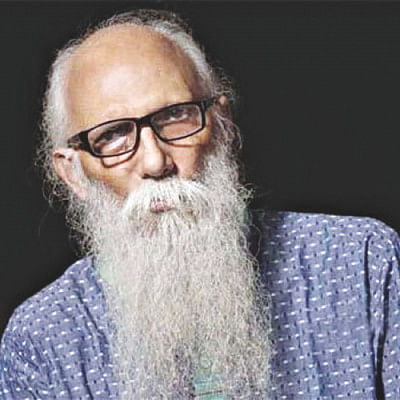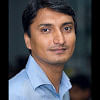Bangabandhu's speech: A defining moment for our freedom

The crowd was getting bigger as the sunny day of March 7, 1971 progressed.
By noon, the then Race Course Ground (now Suhrawardy Udyan) turned into a human sea with people milling into the streets: all waiting on their toes to hear the voice of the undisputed leader of the Bangalees, Bangabandhu Sheikh Mujibur Rahman.
Among the massive crowd was present a young journalist and a budding poet, Nirmalendu Goon, to cover the speech.
Nirmalendu, then a trainee sub-editor of Daily People, took a seat reserved for journalists just next to the podium with the help of Anwar Zahid, the then executive editor of The Weekly Gonobangla, a sister concern of the Daily People.
Like the restless crowd, 26-year-old Nirmalendu too was eager to hear what would become the most powerful speech in the country's history.
And then Bangabandhu arrived.
Clad in white panjabi-pajama with the iconic black vest, he approached the podium around 3:15pm.
"Joy Bangla!"
The confluence of people greeted him with the slogan.
Bangabandhu started: "Today, I appear before you with a heavy heart. You know and understand everything. We tried with our lives. But the painful reality is that today, in Dhaka, Chattogram, Khulna, Rajshahi and Rangpur, the streets are red with the blood of our brethren. Today the people of Bangla want freedom, the people of Bangla want to live, the people of Bangla want their rights…"
"It was an electrifying speech," Nirmalendu, now 75, told The Daily Star.
The poet recalled his memories of March 7 in his autobiography covering Liberation War, titled "Atmakhata 1971".
"I had never listened to such a spellbinding speech and I won't get the chance to hear such speech again in my lifetime. It was poignant, it was brilliant…" he wrote in the book.
The speech served as a muse for Nirmalendu who went on to write one of his greatest poems Swadhinata Ei Shobdoti Kibhabe Amader Holo (how the word independence became ours).
In his poem, he termed Bangabandhu a "poet" and his speech an "epic poem", giving descriptions of the ground, the eagerly awaiting crowd and Bangabandhu's arrival.
"Bangabandhu's [March 7] unwritten speech gave an impression that he had faith in an unexplained miraculous power. It seemed someone inside [of Bangabandhu] was providing word after word, sentence after sentence to his voice."
"And like a waterfall, the words were coming out of his mouth," he wrote in his book.
An Ekushey Padak and Swadhinata Padak winner Nirmalendu thinks it would be unjustified if the creator of that speech with 103 verses is not recognised as a poet.
"So, I describe Bangabandhu as a poet," he wrote.
"The sea of rebellious people eagerly waiting at the Maidan since morning for him… He is a poet. When will the poet appear?" he went on.
He considers that the March 7 address of Bangabandhu will remain in the hearts and minds of the people forever.
"Whether or not my poetry remains, I don't have an ounce of doubt that Bangabandhu's March 7 address will remain in its full glory."
"To me the address is something like a political poem. It is complete in itself. I think the speech is the best intellectual property of Bangalees," he wrote in "Atmakhata 1971".
He said: "Sending me into an obsession, Bangabandhu finished his address by saying, 'The struggle this time is for our emancipation. The struggle this time is for independence. Joy Bangla!'"
Nirmalendu said some people compare Bangabandhu's March 7 speech with the Gettysburg Address by Abraham Lincoln.
"I think Bangabandhu's speech is far more powerful from the Gettysburg Address. With the experience of listening to iconic speeches of many leaders, I can say that I have never heard any address that was better than that of Bangabandhu."
According to the autobiography, it was decided that the Weekly Gonobangla would publish a telegram based on the Bangabandhu's speech on the evening of March 7.
Reaching his office, Nirmalendu prepared a report with a headline using last two sentences of Bangabandhu's address.
"After reading the report, Zahid bhai smiled and said, 'haven't you noticed Sheikh Shaheb has given four conditions?'"
"Where, when?" Nirmalendu asked.
Zahid then told him to write a poem for the telegram instead, according to his autobiography.
"I sat down to write a poem," said the poet.
The poem was published on that day's issue of Gonobangla, but Nirmalendu couldn't recall the poem. He does not have a copy of that issue of Gonobangla either, according to the autobiography.
Then in 1979 he wrote his iconic poetry Swadhinata Ei Shobdoti Kibhabe Amader Holo.
Sharing the background of writing the poem, Nirmalendu said he was then in Mymensingh as his wife was then a student of Mymensingh Medical Collage.
During the Ziaur Rahman regime, Bangabandhu and his historic speech were virtually banned and the history of Liberation War was being distorted that forced him to write the poem.
"I wanted to write a poem so that it would arouse curiosity of the new generation to hear the speech," he added.
His father, Sukhendu Prokash Goon Chowdhury, an artist, who was bedridden at his Mymensingh residence, was his first audience.
"After hearing my poem, my father said he can recall the speech of Bangabandhu. I realised that my intention was fulfilled," he said.
The poem was first published in weekly Sachitra Sandhani in 1980 and was incorporated in his poetry collection "Chashabhushar Kabyo", published in February, 1981.
Nirmalendu quoted two lines of Bangabandhu's speech -- "The struggle this time is for our emancipation. The struggle this time is for independence -- and ended his poem with the line, "That is when the word impendence became ours."

 For all latest news, follow The Daily Star's Google News channel.
For all latest news, follow The Daily Star's Google News channel. 



Comments